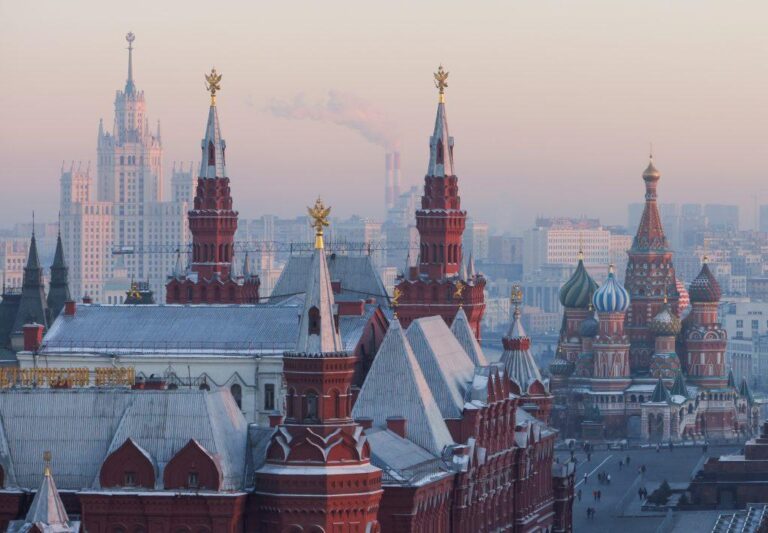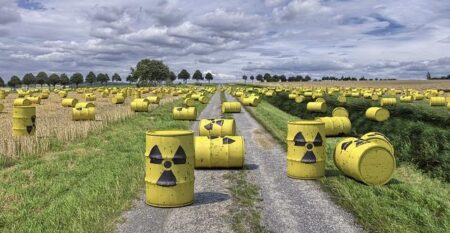Russia has expressed its desire for Iran to maintain cooperation with the United Nations nuclear watchdog, the International Atomic Energy Agency (IAEA), according to a Reuters report. Moscow emphasized the importance of continued dialogue and transparency as tensions around Iran’s nuclear program persist on the international stage. The development underscores Russia’s role in facilitating diplomatic engagement amid ongoing concerns over Iran’s nuclear activities.
Russia Urges Continued Iranian Collaboration with UN Nuclear Agency Amid Rising Tensions
Despite escalating geopolitical frictions, Moscow has emphasized the importance of Tehran maintaining its engagement with the International Atomic Energy Agency (IAEA). Russian officials argue that ongoing cooperation is pivotal to ensuring transparency and preventing further destabilization in the region. They have stressed that open dialogue and regular inspections are crucial steps toward mutual trust, urging all parties involved to prioritize diplomatic channels over confrontation.
Key points highlighted by Russia include:
- Continued access for IAEA inspectors to Iranian nuclear sites
- Timely reporting of nuclear activities and material inventories
- Commitment to the Joint Comprehensive Plan of Action (JCPOA) frameworks
- Collaboration to avoid misunderstandings that could escalate tensions
| Aspect | Russia’s Position | Implications |
|---|---|---|
| IAEA Inspections | Must proceed without hindrance | Enhances transparency |
| Diplomatic Engagement | Essential for conflict resolution | Reduces risk of escalation |
| Sanctions Relief Talks | Should align with compliance | Promotes constructive incentives |
Implications of Iran’s Cooperation for Global Non-Proliferation Efforts and Regional Stability
Iran’s ongoing collaboration with the UN nuclear watchdog remains a pivotal factor in shaping the trajectory of global non-proliferation frameworks. Continued transparency and access to nuclear sites allow the international community to monitor compliance, thereby reducing the risk of escalation and mistrust. Russia’s endorsement of Iran’s cooperation signals a nuanced geopolitical stance that could potentially stabilize diplomatic channels but also complicate Western strategies aimed at curbing Tehran’s nuclear ambitions. This cooperation underscores the delicate balance between enforcing safeguards and respecting national sovereignty, which is crucial for sustaining effective multilateral non-proliferation regimes.
Regionally, Iran’s engagement with international inspectors can act as a stabilizing influence amidst long-standing tensions. However, persistent uncertainties about Iran’s nuclear program fuel strategic recalibrations by its neighbors, impacting security architectures across the Middle East. Key implications include:
- Enhanced regional surveillance: Neighboring states may bolster their own intelligence and defense measures in response.
- Diplomatic leverage: Sustained cooperation may provide Iran with greater bargaining power in regional negotiations.
- Risk mitigation: Transparency helps reduce the likelihood of preemptive military actions driven by suspicion.
| Stakeholder | Potential Impact | Strategic Consideration |
|---|---|---|
| Iran | Maintains international legitimacy | Leverage in sanctions dialogues |
| Regional Neighbors | Heightened alertness | Military modernization efforts |
| UN & IAEA | Verification authority upheld | Need for impartial monitoring |
Recommendations for Strengthening UN Monitoring Mechanisms to Ensure Transparency
To bolster transparency within the International Atomic Energy Agency (IAEA) inspections, it is imperative to implement more robust verification tools and establish clear protocols that ensure unbiased reporting. This includes the integration of advanced satellite imagery analysis combined with onsite inspections, which can provide a multi-layered approach to monitoring nuclear activities. Additionally, fostering direct communication channels among UN member states and the watchdog agency can create a more collaborative environment for sharing real-time information and addressing discrepancies promptly.
Enhancing accountability mechanisms calls for a standardized framework where independent experts are involved in the assessment process, reducing political influence on inspections. Increasing transparency can also be achieved through:
- Regular public disclosure of inspection findings while preserving sensitive data.
- Implementation of automated reporting systems to minimize human errors and delays.
- Strengthening cooperation agreements with countries under scrutiny to facilitate unhindered access and data sharing.
| Recommended Measure | Expected Impact | Implementation Timeline |
|---|---|---|
| Advanced Satellite Data Integration | Enhanced real-time monitoring | 6-12 months |
| Independent Expert Panels | Reduced political bias | 12-18 months |
| Automated Reporting Systems | Improved accuracy and speed | 9-15 months |
The Way Forward
As the international community continues to monitor developments in the Middle East, Russia’s call for sustained cooperation between Iran and the UN nuclear watchdog underscores ongoing diplomatic efforts to ensure transparency and stability in the region. How this cooperation will evolve remains a key factor in the broader dialogue on nuclear non-proliferation and geopolitical relations moving forward.




